Case Number : Case 801 - 12th July Posted By: Guest
Please read the clinical history and view the images by clicking on them before you proffer your diagnosis.
Submitted Date :
2.5 cm red indurated scaly plaque on the scalp -?BCC ?SCC. No other lesions.
Case posted by Dr. Richard Carr, with special thanks to Dr. Arti Bakshi.
Case posted by Dr. Richard Carr, with special thanks to Dr. Arti Bakshi.

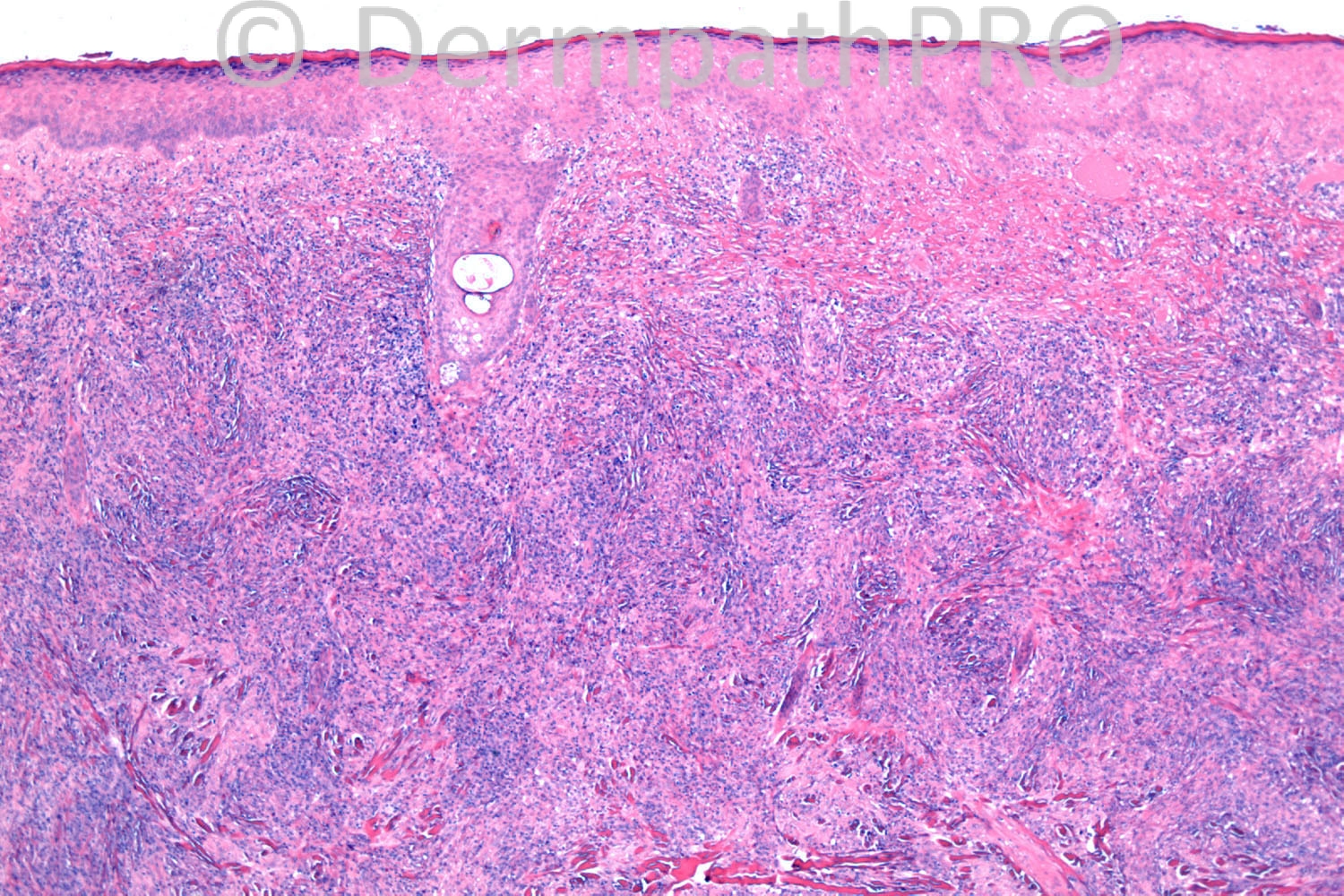
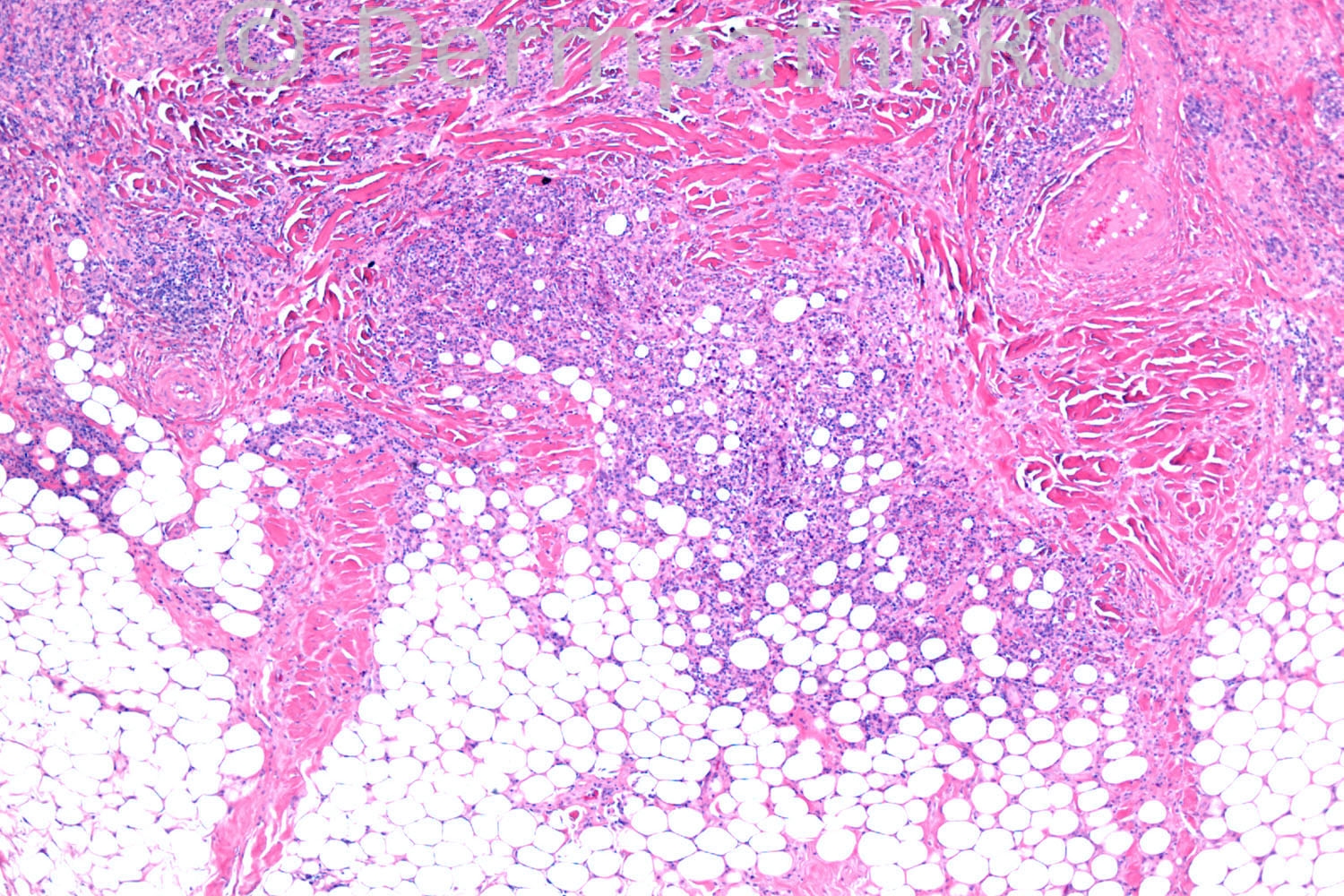
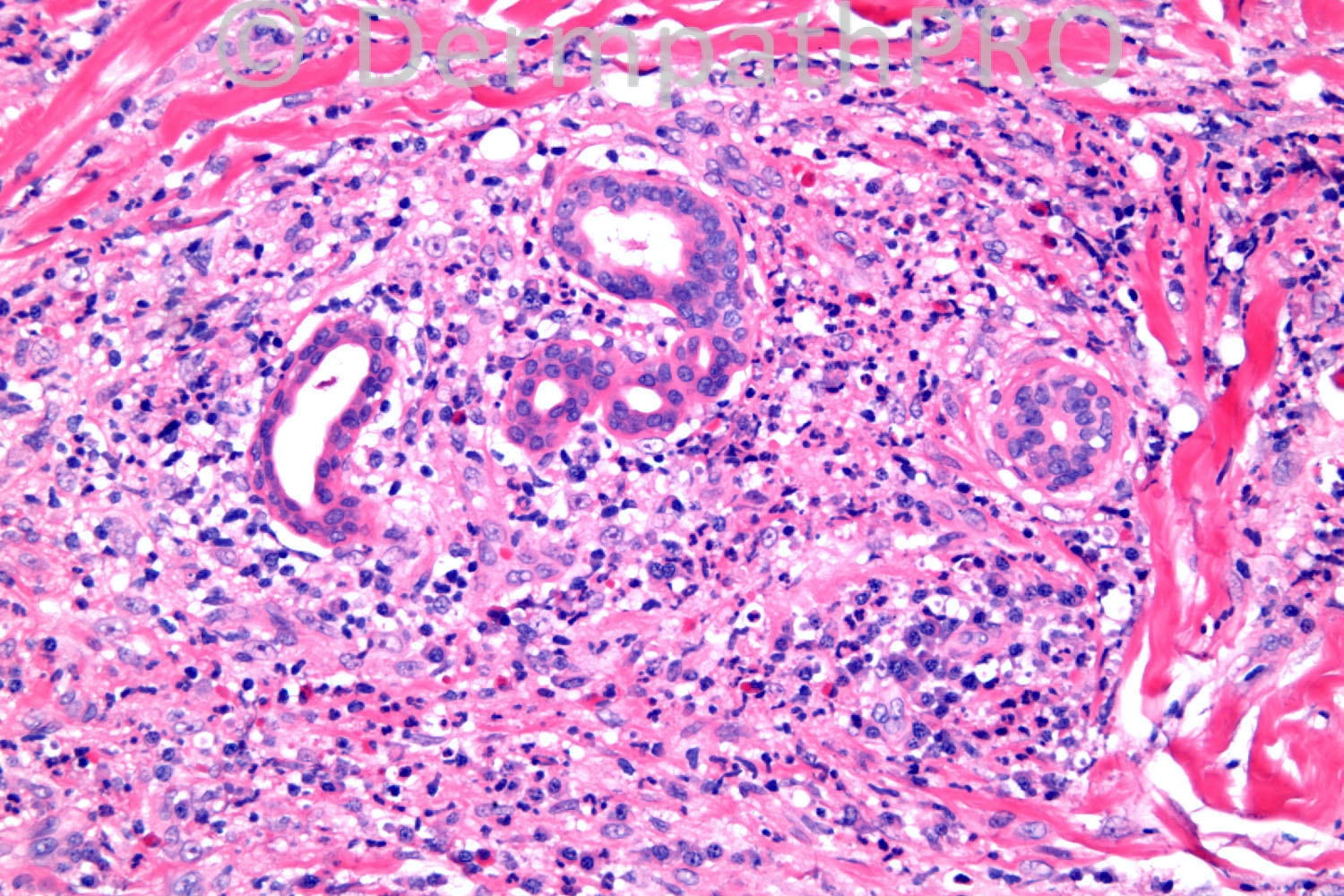
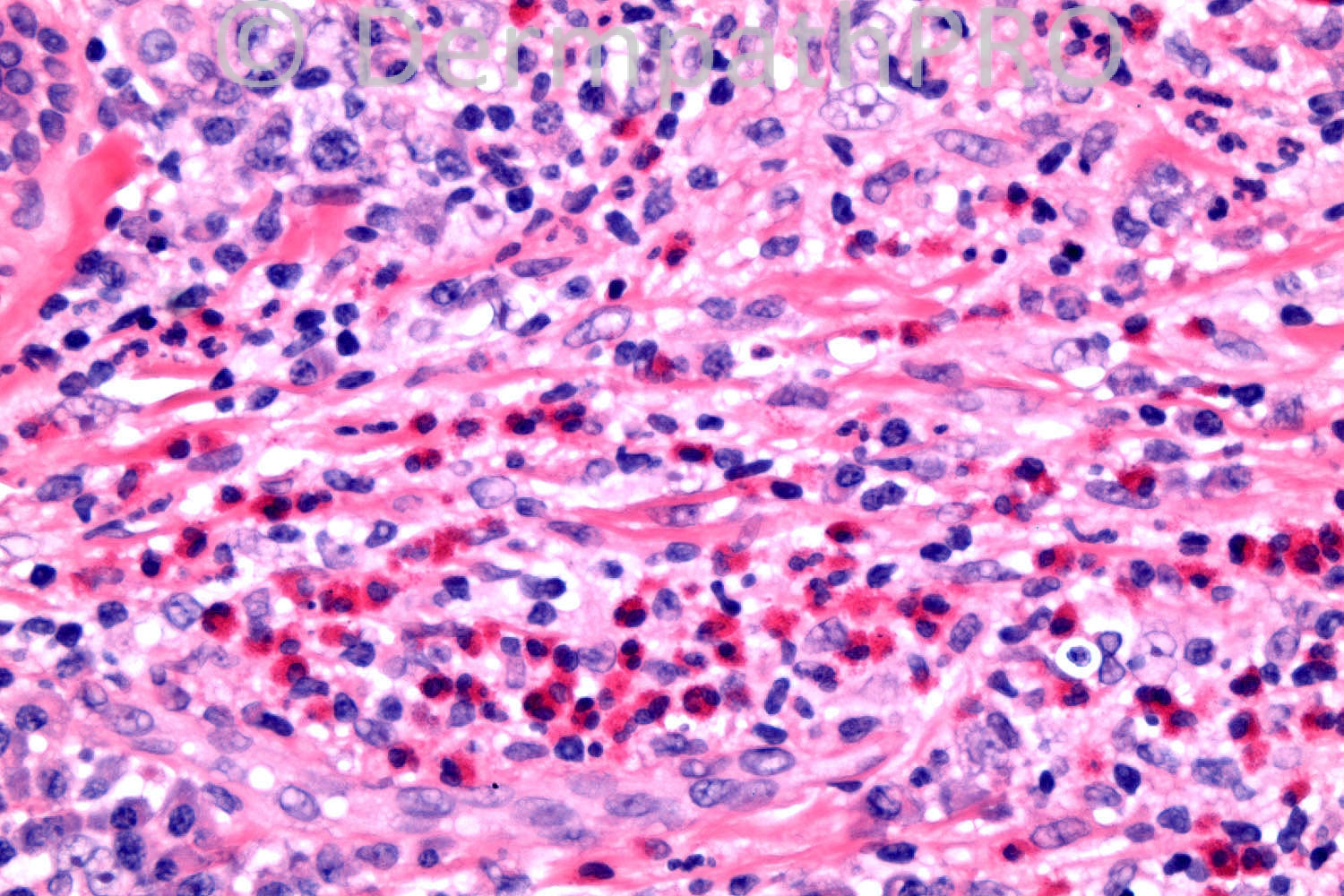

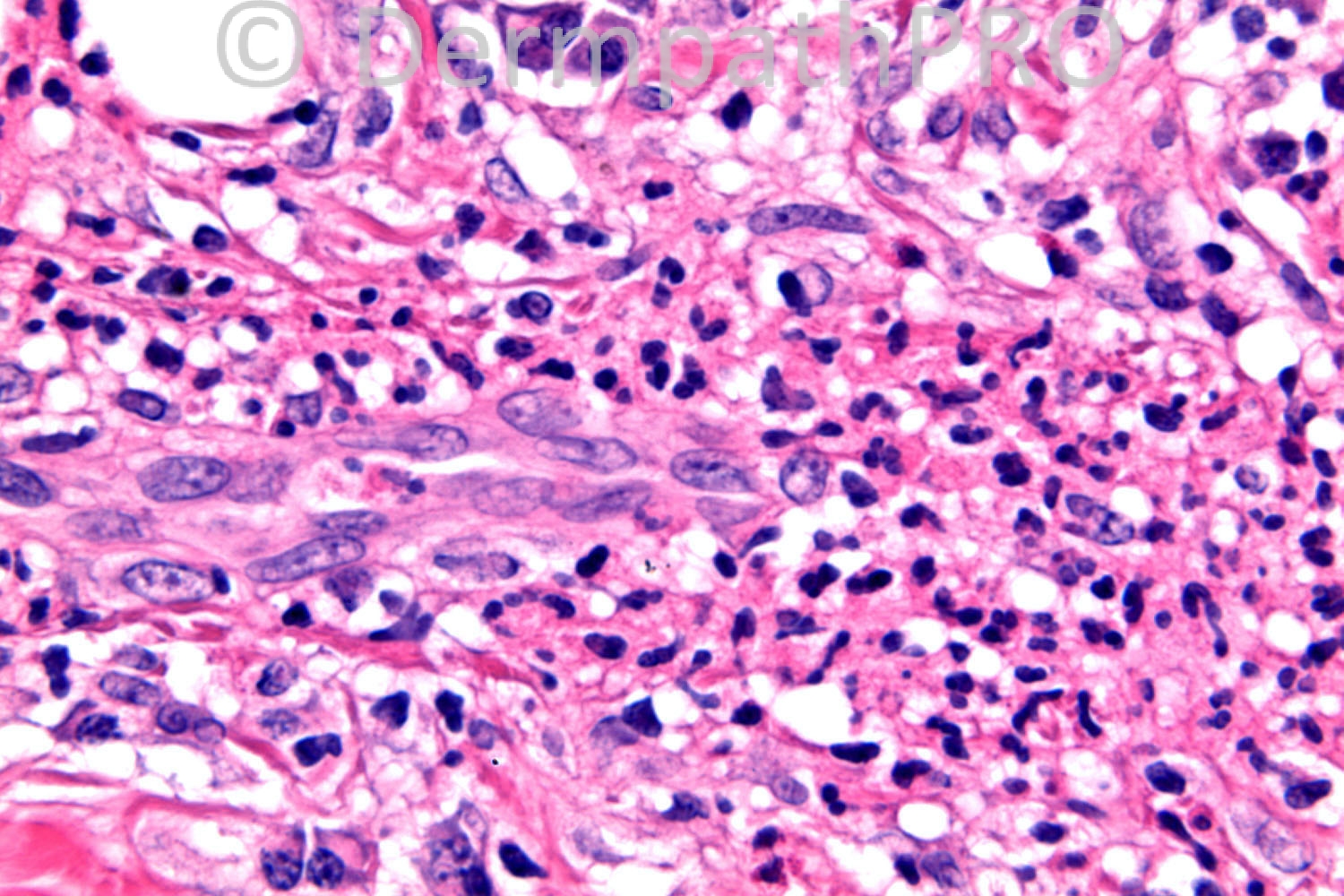
Join the conversation
You can post now and register later. If you have an account, sign in now to post with your account.